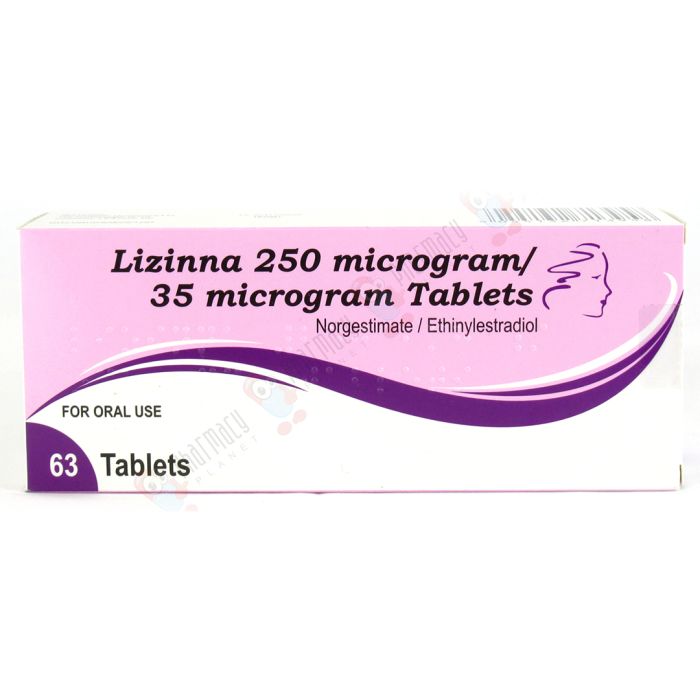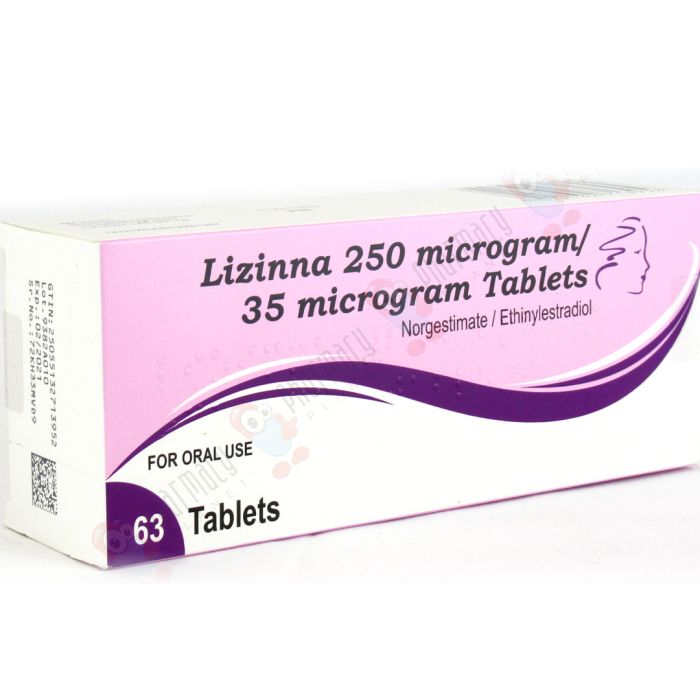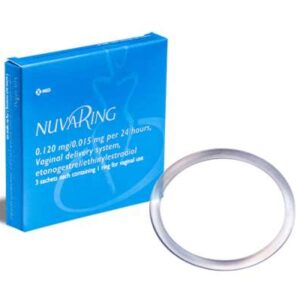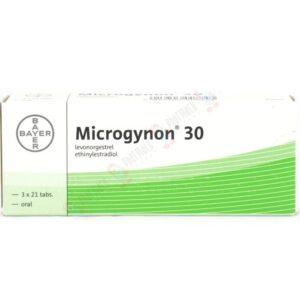What is Lizinna?
How does it work?
Lizinna works by introducing two hormones into the body that women naturally experience. These are a synthetic estrogen Ethinyl estradiol and the synthetic progestin norgestimate. Synthetic hormones work together to control your cycle and reproductive periods in three specific ways:
- Prevents an egg from maturing and leaving the ovary every month
- The lining of the uterus is thinned so that an egg cannot be implanted
- Thicken natural cervical mucus, so sperm cannot enter the uterus to fertilize an egg
- If you take a pill every day and follow the instructions, Lizinna gives you one of the highest rates of contraception.
What are the benefits of taking it?
This oral contraceptive is a long-term reversible contraceptive method that does not interrupt sexual relations. Provides rapid contraceptive coverage with minimal side effects.
In addition to reliably preventing pregnancy, Lizinna uses also includes the ability to lighten periods to improve PMS and regulate periods so that regular, lighter bleeding is experienced with less pain.
It can also help reduce acne, endometriosis symptoms, and give control over when you experience bleeding. Many women find that a regular cycle of periods helps them manage their work and home life more easily.
How do I use it and its dosage?
Each Lizinna contraceptive pill contains 250 micrograms of norgestimate and 35 micrograms of Ethinylestradiol. It is a monophasic combined contraceptive, which means that each of the pills contains the same amount of synthetic estrogen and progesterone, so you don’t have to worry about taking the right amount in the right order; one pill a day is all that is needed.
For the recommended lizinna dosages, You should take one pill a day for 21 days, and then have a seven-day break unless you miss a period, in which case you should take the next pack right away. He is still protected during his seven-day break.
Lizinna pills come in monthly packages with the days of the week printed on the packaging so you can keep track of your dose.
On your seven-day break, you may experience bleeding. This is not a true period, but rather a withdrawal bleed due to falling hormone levels in your body. When seven days have passed, you should start the next pack of pills, even if you are still bleeding.
Take Lizinna at the same time each day with or without food. Lizinna is a small pill that is easily swallowed without water if necessary, but it is best to take it with a drink.
Side effects & precautions
It is important to know the possible side effects that this medicine can cause, since some of them could indicate that you need medical attention.
If you notice any signs of a blood clot, heart attack, stroke, allergic reaction, breast or cervical cancer, or severe liver disease, go to the nearest hospital. You can find more details about these symptoms in the patient information leaflet.
Very common (1 in 10 people or more):
- Headache, upset stomach, nausea, vaginal bleeding, painful or irregular periods, diarrhea.
Common (1 in 10 people or less):
- Mood swings, fluid retention, vaginal or urinary tract infection, anxiety, dizziness, migraine, acne, weight fluctuation, constipation, muscle spasms, difficulty
Uncommon (1 in 100 people or less):
- Irregular appetite, vision problems, dry eyes, hair loss, palpitations, redness, itching, tingling sensation, high blood
Rare (1 in 1,000 people or less):
- Increased heart rate, feelings of vertigo, pancreatitis.
Warnings and precautions
Some medical conditions may make this pill unsuitable for use. Do not use it if you have or have ever had: a blood clot, heart attack, stroke, breast or cervical cancer, or any medical condition that puts you at increased risk of experiencing; unexplained vaginal bleeding; irregular heartbeat; migraine with aura; severe liver disease; inflammation of the pancreas; any disease that affects fat levels in the blood; or angina pectoris.
Tell your doctor if you have had any of the following medical conditions, as they may affect your ability to safely use this treatment: high blood pressure; sickle cell anemia; epilepsy; Crohn’s disease or ulcerative colitis; diabetes; gallstones; liver dysfunction; lupus; porphyria; high levels of fat in the blood; or if there are cases of blood clots in your family.







Reviews
There are no reviews yet.